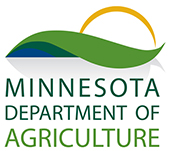Pest Control Experts Minnesota
Wasps and bees sting to defend themselves or their colony. Stinging involves the injection of protein venom that causes pain and other reactions.
Wasps and bumblebees can sting more than once because they are able to pull out their stinger without injury to themselves. If a wasp or bumblebee stings you, the stinger is not left in your skin.
Wasps and Bees
Honeybees have barbs on their stinger, which remain hooked in the skin. The stinger, which is connected to the digestive system of the bee, is torn out of the abdomen as the bee attempts to fly away. As a result, the bee soon dies. If a honeybee stings you, scratch out the stinger (with its attached venom gland) with your fingernail as soon as possible. Do not try to pull out the stinger between two fingers. Doing so only forces more venom into your skin, causing greater irritation.
Most people have only local reactions to wasp and bee stings, although a few may experience more serious allergic reactions. Local, non-allergic reactions range from burning, itching, redness, and tenderness to massive swelling and itching that may last up to a week. These local reactions can be treated with ice, vinegar, honey, meat tenderizer, or commercial topical ointment to relieve the itching. An allergic reaction may include hives or rash, swelling away from the sting site, headache, minor respiratory symptoms, and stomach upset. These allergic reactions are not life threatening and can be readily treated with an antihistamine.
Very rarely, a person may suffer a life-threatening, systemic allergic reaction to a bee or wasp sting, which can cause anaphylactic shock (fainting, difficulty breathing, swelling, and blockage in the throat) within minutes of being stung. These systemic symptoms are cause for immediate medical attention. People with known systemic allergic reactions to bee or wasp stings should consult with their physician to obtain an Epi-PenTM or Ana-Guard Sting KitTM to carry with them at all times. The venoms of bees and wasps are different, so having a severe reaction to a wasp sting does not mean a person will have the same reaction to a bee sting.
 Wasps
Wasps
The best time of the year to control wasps is in June after the queen has established her colony and while the colony is still small. However, because nests are small, they are also harder to find. The best time of the day to control wasp nests is at night, when they are less active. At temperatures below 50° F, wasps have difficulty flying. Never seal a wasp nest until you are sure there are no surviving wasps inside. If a nest is not discovered until fall, control may be unnecessary, as imminent freezing temperatures will kill the colony.
Exposed wasp nests
Wasp nests that are visible but are not near your home or areas of human activity do not need to be treated. If they are not disturbed, the wasps will not bother you.
Nests that are near human activity can pose a potential problem. If there is a concern about stings, you should eradicate the nest.
Apply a ready-to-use aerosol “wasp and hornet spray” into the entrance of the nest during late evening according to label directions. If no activity is observed the next day, the nest has been successfully exterminated. If live wasps are still observed, repeat the treatment at three-day intervals until they are all dead.
Mechanical control without insecticides is possible for small, exposed nests. At night, cover the nest with a large, heavy, plastic bag and seal it shut. Cut the nest from the tree and freeze it or let the bag sit in the sun, which will kill the wasps inside in a day or two. Use caution: there is more risk involved in this procedure than in spraying the nest.
Ground wasp nests
When yellow jackets are found nesting in the ground, first try pouring a soap and water solution into the entrance. Many types of soap will work, including dish and laundry soap.
If that does not work, apply an insecticide into the nest opening. Be sure you use a product that is cleared for use in lawns or soil. Dusts are more effective than liquid insecticides because liquids do not always reach the nest. After you are sure all the wasps have been exterminated, cover the nest entrance with soil.
When treating ground-dwelling wasp nests, use one of the following insecticides:
- carbaryl (e.g. Sevin) as a dust
- chlorpyrifos (e.g. Dursban) as a dust
- carbaryl (e.g. Sevin) as a liquid concentrate
- acephate (e.g. Orthene) as a liquid concentrate
- diazinon as a liquid concentrate
Call your Minnesota Pest Control Expert. All it takes is a couple minutes of your time. Find a business that are more than willing, hardworking, honest, diligent people who will give you the best price possible.





